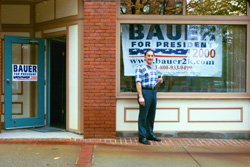
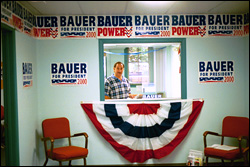
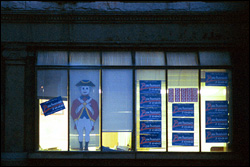
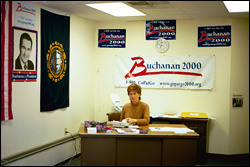
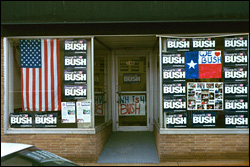

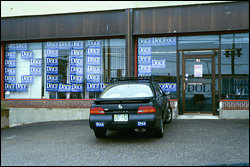
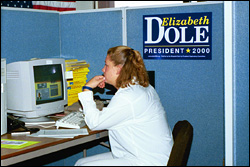
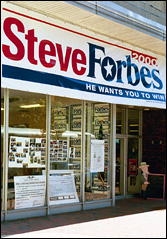
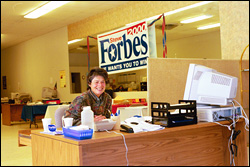
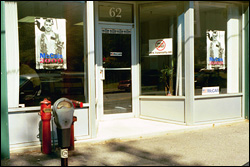
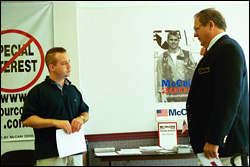
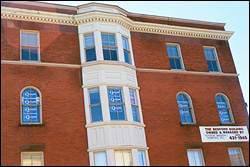
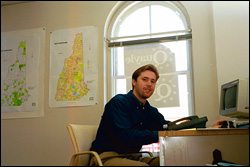
Photos Copyright 1999 Eric
M. Appleman/Democracy in Action. All rights reserved.
| June
Report
|
 |
 |
 |
 |
|
 |
 |
|
 |
 |
|
 |
 |
|
 |
 |
|
 |
 |
| A number of changes occurred in the Republican field since the mid-June report. Gary Bauer opened a New Hampshire campaign office in the first part of September, while Lamar Alexander, John Kasich and Bob Smith closed their New Hampshire headquarters. Dan Quayle announced his withdrawal from the race on September 27 and his staffers began packing up. In July Pat Buchanan moved his offices across Elm Street to the same location he had had in 1992 (bigger space and individual offices). Alan Keyes and Orrin Hatch had not established formal headquarters as of late September. |
| Bradley | 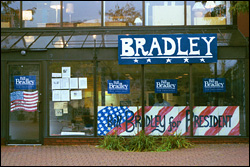 |
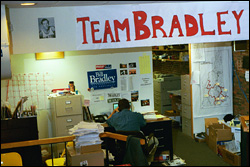 |
| State Headquarters--Concord | ||
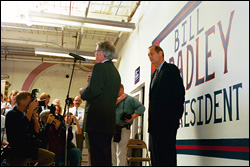 |
||
| New Headquarters--Manchester |
| Gore | 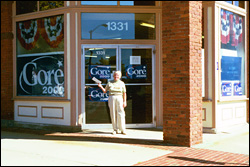 |
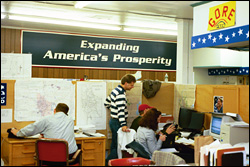 |
| State Headquarters--Manchester | ||
Concord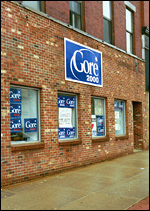 |
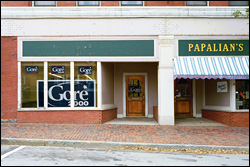
Dover |
|
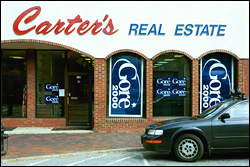 |
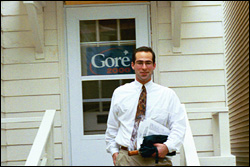 |
|
| Nashua | Portsmouth |
| After Labor Day, the Gore campaign began opening satellite offices around the state, some of which are shown above. By the end of September these offices were in various stages of setting up. Meanwhile, toward the end of September Bill Bradley opened a new office in Manchester in addition to his original space in Concord. |
| Choosing a Headquarters Space
There are two basic campaign headquarters philosophies: the storefront and the office tucked away an office building. A high visibility, storefront headquarters can powerfully reinforce the campaign's message, in effect serving as a living billboard or ambassador. Strategically, therefore, a campaign may choose to locate the headquarters in an area with large numbers of persuable voters. The downside of a storefront headquarters is that walk-in traffic can at times be distracting to the staff. Campaign headquarters have some unique requirements beyond the normal concerns of rent and location. Examples include adequate parking for volunteers and the ability to accomodate a large influx of people in the closing weeks of the primary, when the office may serve as a base for busloads of supporters. If the campaign's office is not expandable it may opt to open a second office in the month or two before the primary to handle the volunteers and increased activity (for example the Quayle campaign had planned to open a storefront in January). If the funds are available and the campaign wants to go retail in a big way, it may decide to have a number of offices around the state for a longer period of time. In New Hampshire both Democratic campaigns seem to be pursuing this strategy, particularly the Gore campaign, while the Republican campaigns have thus far kept to a single headquarters. |